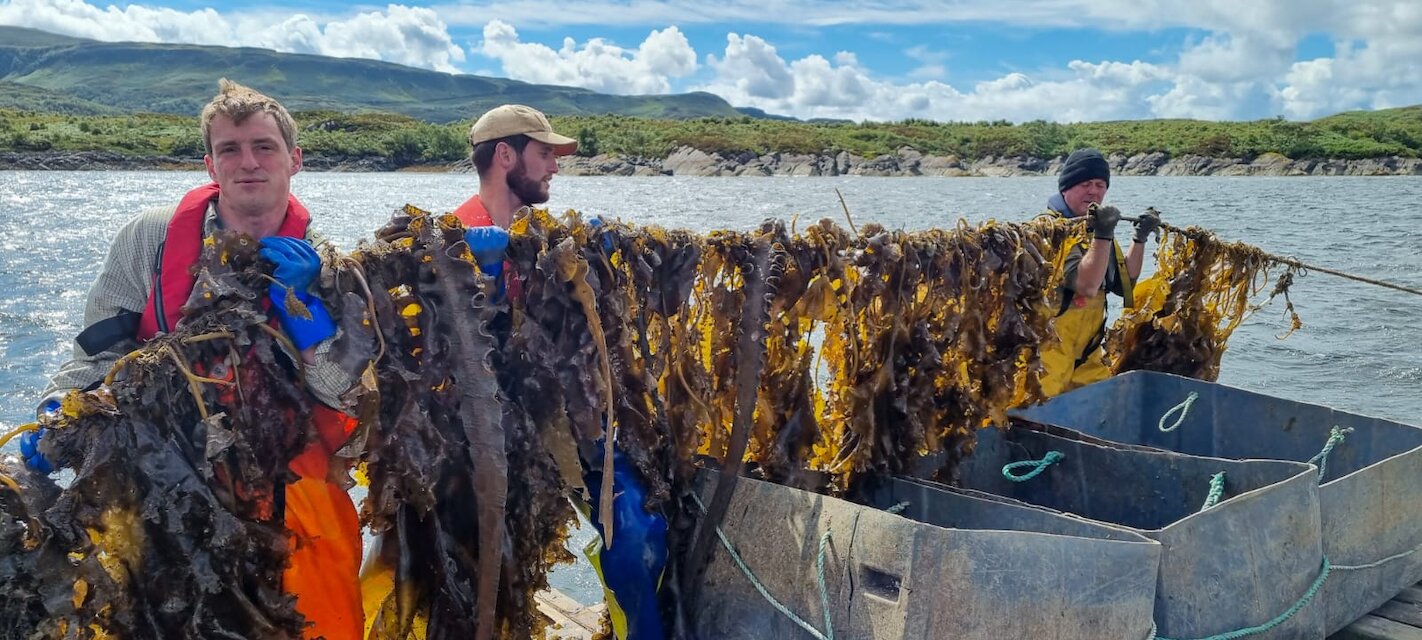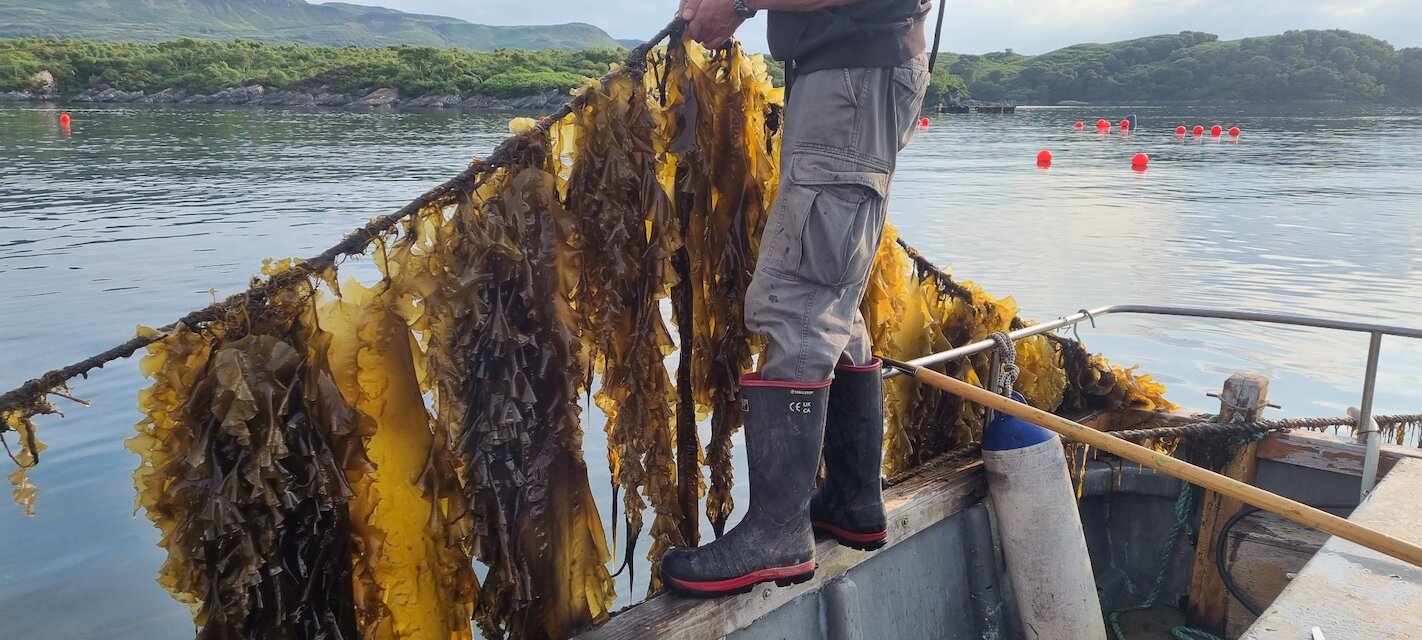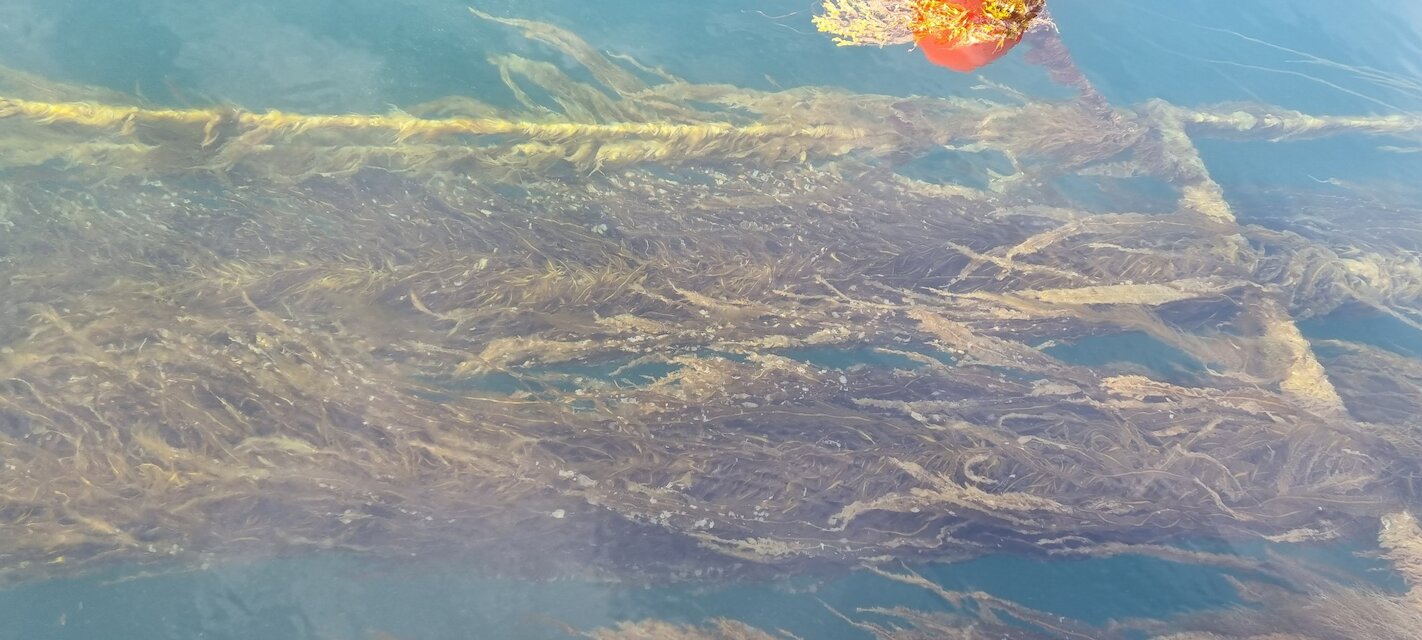Purpose of Grant
There is extensive evidence to support the role that kelp forests play in providing shelter and grazing opportunities for marine fish populations. Wild sea trout are drawn to kelp habitats, which allow the fish to graze on their natural diet of shellfish and molluscs. In turn, kelp absorbs and thrives on the nitrates and phosphates produced in sea trout waste, allowing a symbiotic balance between the two.
Project Description
Atlantic Mariculture have developed a design for a 'kelp shelter' for sea trout, and intend to trial five of these structures at key points on known migratory routes within the Shiel and Moidart sea trout catchment area in Lochaber. Each shelter will be used to grow sustainably cultivated brown kelp species - native to this area - and will be 100m in length, with vertical growing lines at 10m intervals, providing a dense curtain of kelp within which sea trout can shelter and feed.
Atlantic Mariculture have identified 5 potential locations to trial these shelters, and plan to repurpose historical salmon netting stations for anchor points – these are on known migratory routes for migratory salmonids.
Kelp forests have been widely documented to provide both food and security for many fish species, and it is hoped that these strategically placed kelp shelters can offer necessary rest stops for sea trout, and simultaneously benefit the surrounding marine ecosytem.
In order to assess the viability of the proposed kelp shelters, the project will consist of two work packages that will be conducted simultaneously:
1) Assessment of wild sea trout interactions on existing seaweed farm structures in Loch Sunart, on the southern shore of the Ardnamurchan Peninsula, and Kentra Bay.
2) Installation and monitoring of up to five prototype 'kelp shelters' along migratory routes within the Shiel and Moidart catchment area.
Both work packages will be run by Atlantic Mariculture, which is experienced in the installation of kelp farm structure in this area, with a basic understanding of sea trout behaviour and movements in the catchment zone. The farms and kelp shelters will be monitored through diving, filming, static cameras and underwater drones and specialist data collection equipment. The project will take place over 24 months, to evaluate the impact of the kelp shelters over two spawning cycles.
Budget
Funding of £43,102 has been awarded to the project.



